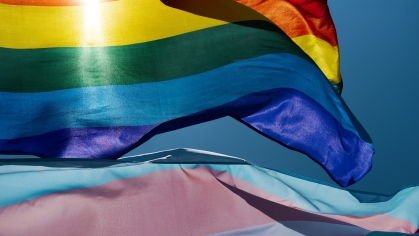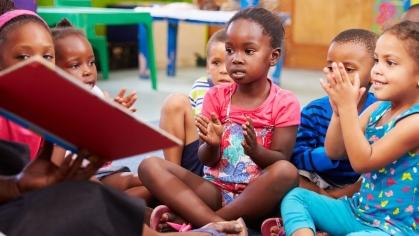Faculty Guest Edit Special Journal Issue on Challenging Anti-Black Racism Across Social Work Curriculum
Rutgers School of Social Work faculty members DuWayne Battle (Teaching Professor, Director of the Baccalaureate Program, and Campus Coordinator of the Baccalaureate Child Welfare Education Program), Samuel Jones (Assistant Dean of PTL Development in the Office of Academic Affairs and Associate Professor of Teaching), and Laura Curran (Associate Professor and Senior Associate Dean for Academic Affairs) guest co-edited an issue of the Journal of Teaching in Social Work entitled "Challenging Anti-Black Racism across the Social Work Curriculum." Dr. Battle shares a bit about the process and his hopes for the issue's impact on the field of social work.
Being an editor for an academic journal is quite a task. What is it like being a guest in that role? Does it make you consider an editor spot one day?
Although I have been a reviewer of articles and book chapters over the years, this was my first time being a guest editor. I am most fortunate that I was a co-guest editor on such an important topic, Challenging Anti-Black Racism across the Social Work Curriculum, with two amazing colleagues, Dr. Sam Jones and Dr. Laura Curran. I would certainly consider being a guest editor again, and I have long thought of being an editor in the diversity, oppression, and social justice arena.
Why did being a guest editor on this particular issue feel so important?
Being a guest editor to help challenge anti-Black racism feels so important because this is such an important issue. Think about it. Racism in America is a 400-year-old problem and a personal experience of my entire lifetime. It is a problem for all of us and needs to be challenged and eliminated by each of us.
What did you hope to achieve for this special issue?
My coeditors and I are glad to feature the work of 41 social work educators, scholars, and practitioners who are committed to challenging anti-Black racism in social work education and practice.
Were there any challenges you faced while guest editing?
This experience has been both challenging and rewarding. The normal challenges of finding enough time to take on extra responsibilities is always a reality and working on this project was no exception. We put our time management and project management skills to work. There were times when we had to complete our work with a quick turnaround. Other assignments had to be reprioritized. Co-editing was done late into the night and on weekends. We maintained a weekly schedule to establish a strategy, review and revise articles, report back on completed assignments, and establish new tasks.
What do you see as the particular contribution this edition is offering to the field?
This series of journal articles helps to contextualize the past, current, and future trends of anti-racist pedagogy, practice, and scholarship. These include abolition and Afrocentric perspectives, diversity and decolonization, cultural competence and cultural humility, institutional racism and structural oppression, intersectionality, critical race theory, and liberatory consciousness.
Are there any particular takeaways you’re hoping your audience comes away with after reading this issue?
Yes. We are hoping that those who read articles in this double issue will understand more about the history of anti-racist work, especially that of Black leaders and social work scholars and practitioners, that has been around for many years. We are hoping that others will remain hopeful as we continue to engage in this important work in the classroom and in our personal and professional lives. We want social work educators and scholars to give special attention to challenging anti-Black racism in their social work curriculum.



